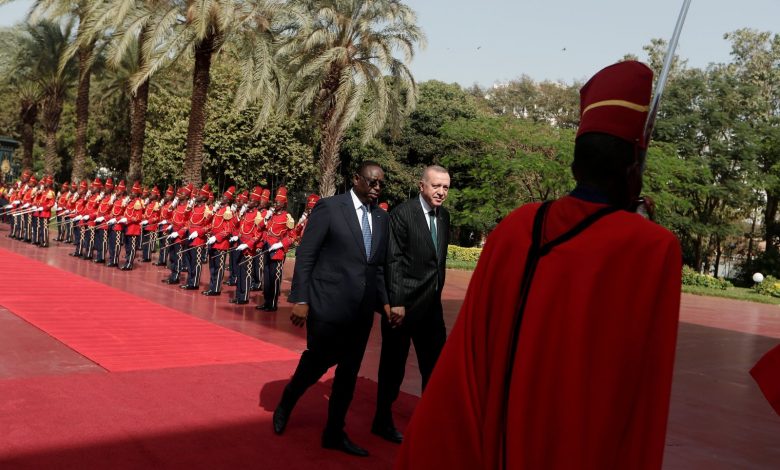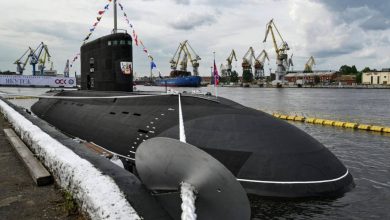Analysis: Türkiye’s African approach sets it apart from West’s colonial legacy

Colonial culture is something that colonialists have studied thoroughly, inspiring the West to nurture despair in the underdeveloped regions.
With the Industrial Revolution, Western states gained an edge over the rest of the world. Not only did they gain the upper hand, but they also invaded the rest of the world. When World War I ended, China, India, Far Eastern Asia and the Ottoman lands were occupied.
The colonial story of African states is something that the world already knows from documentaries and books. In fact, colonial history is like African history. The developed countries have planned not only the development of their leagues but also how underdeveloped and developing countries will be left in misery. Colonial culture is something that the colonial empire has studied thoroughly. Either cross-section of an African country today and deepening on it or checking the general progress in time will give a clear understanding of it.
Today, if we consider African countries and study them from the point of view of underground resources, climate and energetic population, we realize that most of them are entirely self-sufficient. A human body needs blood circulating within its veins. Each colonial Western state has constantly sucked the blood of the African countries like a vampire by getting its teeth into the arteries of these countries.
When the resources of an African country flowed toward a European country, the per capita income in that country could reach $60,000 to $70,000. The deeper the misery has been in an African country, the higher the welfare coefficient was in the European countries.
The stages of Western colonialism
Western colonialism has gone through stages. First-generation colonialism occupied land, killed people and directly exploited resources. Later, when the states became independent one by one through the wars of independence, a new generation of colonialism culture developed. In this second period, colonial intellectuals and colonial-type administrators and dictators, mostly educated by European states, inserted their influence in the countries and exploited the African nations with the help of local dictators.
As the American sociologist and economy historian Immanuel Wallerstein said, Western states held five monopolies in these countries: management, mining, finance, technology and media. While holding the monopolies, Westerners created pictures of how people globally would know, perceive and see Africa.
On paper, Africa has been portrayed as an extraordinarily desert, a picture of no means, where people live without food and water, crawling on the ground. However, Africa is the most fertile environment globally, with underground resources, water richness and diversity of produce.
What is new in Africa today: Along with the change in global balances, a conflict of influence between states has started in Africa. On the one hand, countries like France, the U.K., Belgium and the United States want to continue the last phase of traditional colonialism. On the other hand, China, Russia, Iran and Türkiye have gradually started to be active in Africa. And in the age of social media, people are aware of the potential and wealth in their own countries and the rest of the world.
The leaders of Niger and Burkina Faso say, “Why do we live like slaves when we have all kinds of resources and wealth at our disposal?” This question will be asked by many administrators and citizens from now on. Niger was exploited by France for years. The people of Niger are waging a war of freedom against France now. By the irony of fate, the West African States (ECOWAS) members are preparing to declare war on their neighbors, essentially to protect the interests of France.
The Türkiye model’s potential impact
All the states that went to Africa so far have been there for their own prosperity and to exploit the resources. Türkiye, as a remnant of an empire, has a culture of ruling. When Türkiye went to Libya, Somalia or another African country, it not only brought Türkiye’s interests to the fore but also pioneered the development of the country it was dealing with, from the administration to the use of technology and the formation of the state system.
In a way, Turks behave with the sensitivity of being from a Muslim country, an extension of Ottomans. Türkiye made efforts to stabilize the countries it is in touch with, to develop and to help people achieve prosperity. At the same time, although not as much as the Africans, Türkiye is also one of the countries condemned to backwardness by the colonial empires. It helps to set empathy with the other victims of colonialism.
Its development, having built its infrastructure, achievements in technology and establishment of the defense industry, set an example for all underdeveloped countries and makes Türkiye influential. Türkiye has achieved this success in the last 20 years, so it is already a very new and applicable experience in line with contemporary times.
Türkiye’s development draws the attention of underdeveloped countries and third-world countries in this sense. In addition, the language of President Recep Tayyip Erdoğan, which oppresses the global oppressors, is increasing the trust and interest in Türkiye many times over.
Source: DailySabah





